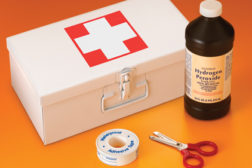Home » sleep deprivation
Articles Tagged with ''sleep deprivation''
A Hard Day’s Night
Training provides nurses with strategies for shift work and long work hours
A NIOSH Science Blog post
May 19, 2015
Become a Leader in Safety Culture
Build your knowledge with ISHN, covering key safety, health and industrial hygiene news, products, and trends.
JOIN TODAYCopyright ©2025. All Rights Reserved BNP Media.
Design, CMS, Hosting & Web Development :: ePublishing







